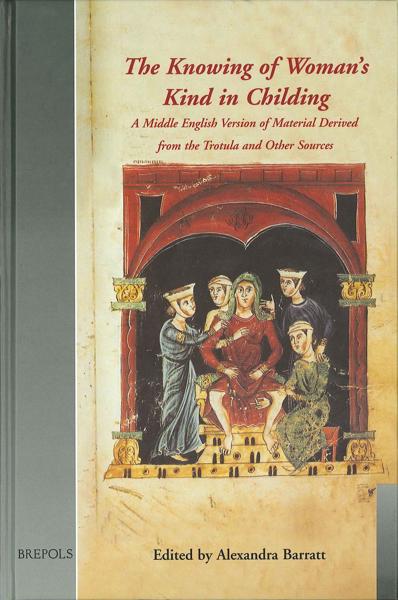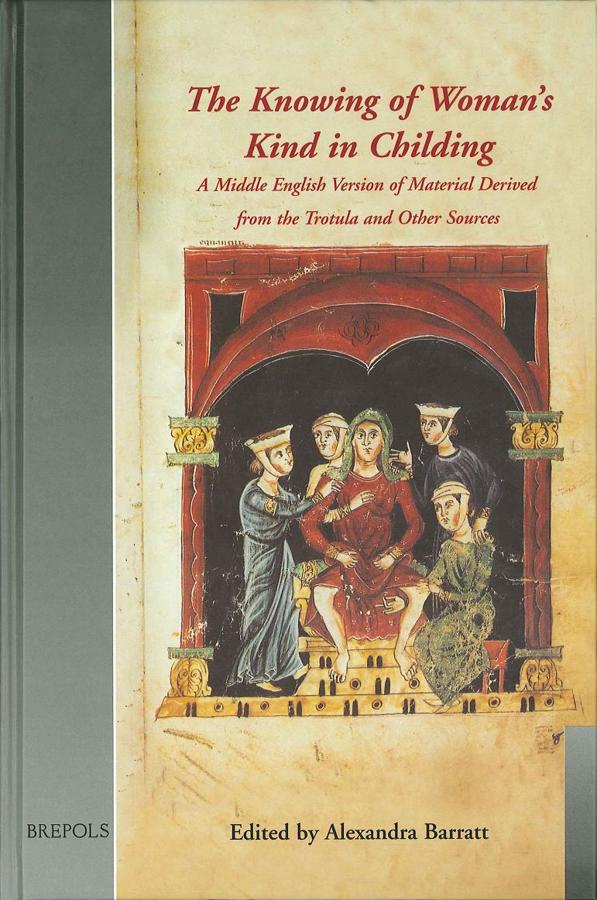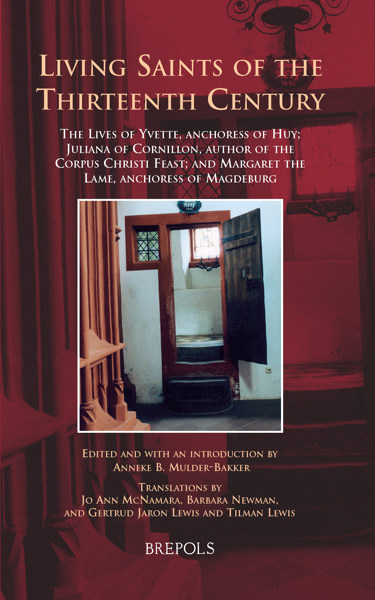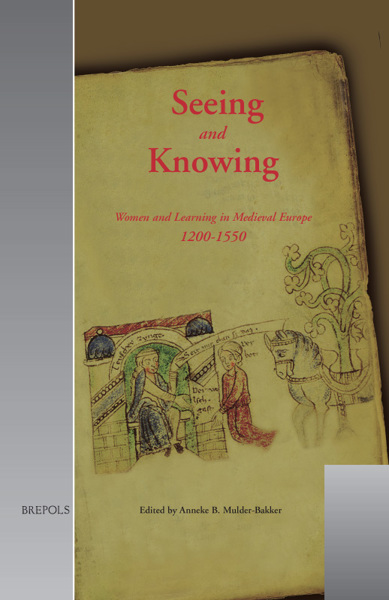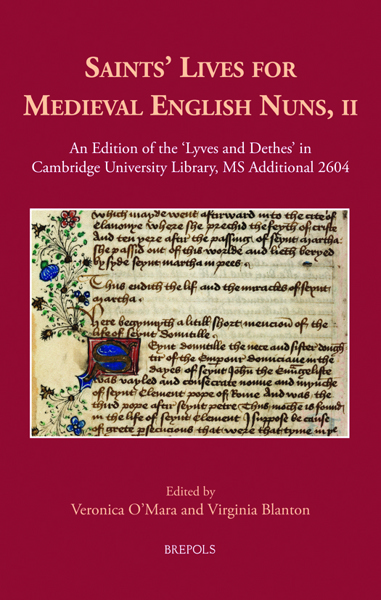
The Knowing of Woman's Kind in Childing
A Middle English Version of Material Derived from the Trotula and other Sources
Alexandra Barratt
- Pages: 169 p.
- Size:160 x 240 mm
- Language(s):English
- Publication Year:2002
- € 45,00 EXCL. VAT RETAIL PRICE
- ISBN: 978-2-503-51073-6
- Hardback
- Available
- € 45,00 EXCL. VAT RETAIL PRICE
- ISBN: 978-2-503-56278-0
- E-book
- Available
This study comprises a critical edition, using all the five extant MSS, of the most popular of the Middle English gynaecological texts deriving from the Latin Trotula-text.
" I believe that the publication of this book is extremely valuable fot the history of women's healthcare in the Middle Ages." (C. Cabaleero Navas in Medical History, vol.47, n°3, July 2003, p. 406)
"Since Barratt has so carefully described her sources and has made every effort to present an accurate text, this edition should be useful to more advanced scholars. On the other hand, its excellent glossary and carefully written introduction should enable undergraduates in upper division courses to make use of the book. Surely it belongs in university libraries everywhere." (D. Evans, in: The Medieval Review, 03.02.19)
Alexandra Barratt is Professor of English at the University of Waikato, New Zealand.
This study comprises a critical edition, using all the five extant manuscripts of the most popular of the Middle English gynaecological texts deriving from the Latin Trotula-text. The Knowing of Women's Kind in Childing is a short fifteenth-century prose treatise which claims to be translated from Latin texts (or Latin and French) that derive ultimately from the Greek. It has a unique importance as it was written by a woman, for a female audience, and on the subject of women. The text considers women's physical constitution, what makes them different from men (primarily the possession of a womb) and, in particular, the three types of problem that the womb causes. That it was written for a female audience is made explicit in the Prologue where the writer explains that he has translated this text because literate women are more likely to read English than any other language and can then pass on the information it contains to illiterate women.The text is a translation, no doubt by a man rather than a woman, but one of his ultimate sources was a text attributed to 'Trotula', in the Middle Ages believed to be the name of a midwife or gynaecologist from Salerno, who wrote extensively on women's ailments, childbirth and beauty care. Recent work shows that such a woman, probably named Trota, did exist and that she did write a gynaecological treatise, the Trotula or 'little Trota', which became closely associated with two other texts not by her. All three however became very popular and were widely disseminated under her name. Large sections of The Knowing of Woman's Kind come, via an Old French translation, from a version of one of these texts, Liber de sinthomatibus mulierum.
